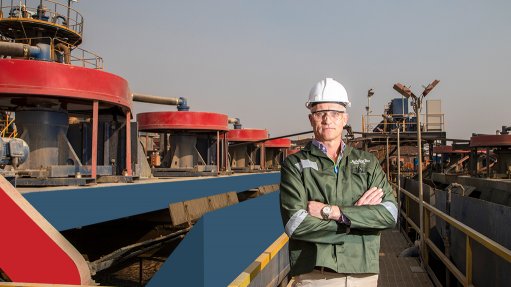Supplier development can help create employment in South Africa
South Africa needs jobs and economic development, but, with government coming under increasing pressure to reduce its wage bill and the corporate sector similarly pushing for greater efficiency in a recessionary economy, the only remaining hope for employment growth is in the small, medium-sized and microenterprise (SMME) sector, says business leadership organisation Accelerate.
To significantly expand the sector, SMMEs need access to market opportunities, finance, technical support and mentorship, which Accelerate CEO Ryan Ravens points out is the aim of the Department of Trade and Industry’s Broad-Based Black Economic Empowerment (BBBEE) Codes of Good Practice.
He notes that enterprise and supplier development (ESD) has been identified by corporates as a key pressure point, primarily because ESD is recognised as one of three priority elements in the amended BBBEE scorecard, accounting for nearly 40% of a company’s total score. “ESD is certain to become the main focus of companies looking for a competitive BBBEE score,” says Ravens.
To maintain or improve BBBEE ratings, companies must invest at least 3% of their net profit after tax in developing emerging suppliers. Ravens notes that the supplier development portion of the scorecard encourages companies to assist their suppliers in supporting and mentoring to ensure suppliers become sustainable and viable businesses.
However, he argues that investments in ESD have not yet realised its potential nor accomplished the intentions of the BBBEE policy. “As enterprise development (ED) is generally not a core competence of most corporations, it has often defaulted to an exercise of BBBEE compliance. “As such, many companies have not leveraged their investment in ED to achieve strategic objectives or unlock its full transformative potential.”
Ravens asserts that the changes to the BBBEE codes now “force a change in perspective and elevate ESD beyond a mere compliance issue to become a pressing strategic priority”.
However, he notes that, while there have been successes, ESD has proven to be a frustrating exercise, with limited impact on emerging black-owned SMMEs.
“A key lesson has been the need to adopt a long-term approach as opposed to short-term interventions,” Ravens asserts, adding that providing ESD grants is unlikely to drive long-term sustainability, particularly if recipients have no financial management training or a plan to use the funds to grow the business. Corporates are gradually learning that emerging SMMEs need far more than the occasional gratuity.”
A number of ESD intermediaries, such as trainers and programmes, have surfaced in recent years, which, Ravens says, is a concern. “The problem is that most of these intermediaries exist purely to feed off ESD funds rather than meaningfully improve the plight of emerging SMMEs.”
He explains that there is insufficient vetting of the programmes on offer and they have little impact. Further, many of these intermediaries are untransformed, resulting in “a large portion of ESD funds being consumed by white service intermediaries as opposed to directly benefiting emerging black SMMEs”.
Another challenge identified by Ravens is using ESDs as a competitive advantage. He notes that, while it makes perfect business sense to restrict suppliers from supplying the same products to competitors, “it is not in keeping with the intention of legislation”, which is to ensure the sustainable growth of SMMEs.
To give effect to the intentions of the BBBEE codes, Ravens argues that the corporate community should collaborate on various ESD initiatives to drive greater economies of scale for legitimate SMME support services and create greater market opportunities for suppliers by sharing suppliers between corporates.
“Successful ESD has the potential to substantially drive real and lasting change in South Africa, but we need to start respecting the intention of the legislation, develop platforms for collaborative ESD initiatives, and move away from the notion that ESD is merely a compliance exercise,” he concludes.
Comments
Press Office
Announcements
What's On
Subscribe to improve your user experience...
Option 1 (equivalent of R125 a month):
Receive a weekly copy of Creamer Media's Engineering News & Mining Weekly magazine
(print copy for those in South Africa and e-magazine for those outside of South Africa)
Receive daily email newsletters
Access to full search results
Access archive of magazine back copies
Access to Projects in Progress
Access to ONE Research Report of your choice in PDF format
Option 2 (equivalent of R375 a month):
All benefits from Option 1
PLUS
Access to Creamer Media's Research Channel Africa for ALL Research Reports, in PDF format, on various industrial and mining sectors
including Electricity; Water; Energy Transition; Hydrogen; Roads, Rail and Ports; Coal; Gold; Platinum; Battery Metals; etc.
Already a subscriber?
Forgotten your password?
Receive weekly copy of Creamer Media's Engineering News & Mining Weekly magazine (print copy for those in South Africa and e-magazine for those outside of South Africa)
➕
Recieve daily email newsletters
➕
Access to full search results
➕
Access archive of magazine back copies
➕
Access to Projects in Progress
➕
Access to ONE Research Report of your choice in PDF format
RESEARCH CHANNEL AFRICA
R4500 (equivalent of R375 a month)
SUBSCRIBEAll benefits from Option 1
➕
Access to Creamer Media's Research Channel Africa for ALL Research Reports on various industrial and mining sectors, in PDF format, including on:
Electricity
➕
Water
➕
Energy Transition
➕
Hydrogen
➕
Roads, Rail and Ports
➕
Coal
➕
Gold
➕
Platinum
➕
Battery Metals
➕
etc.
Receive all benefits from Option 1 or Option 2 delivered to numerous people at your company
➕
Multiple User names and Passwords for simultaneous log-ins
➕
Intranet integration access to all in your organisation


















